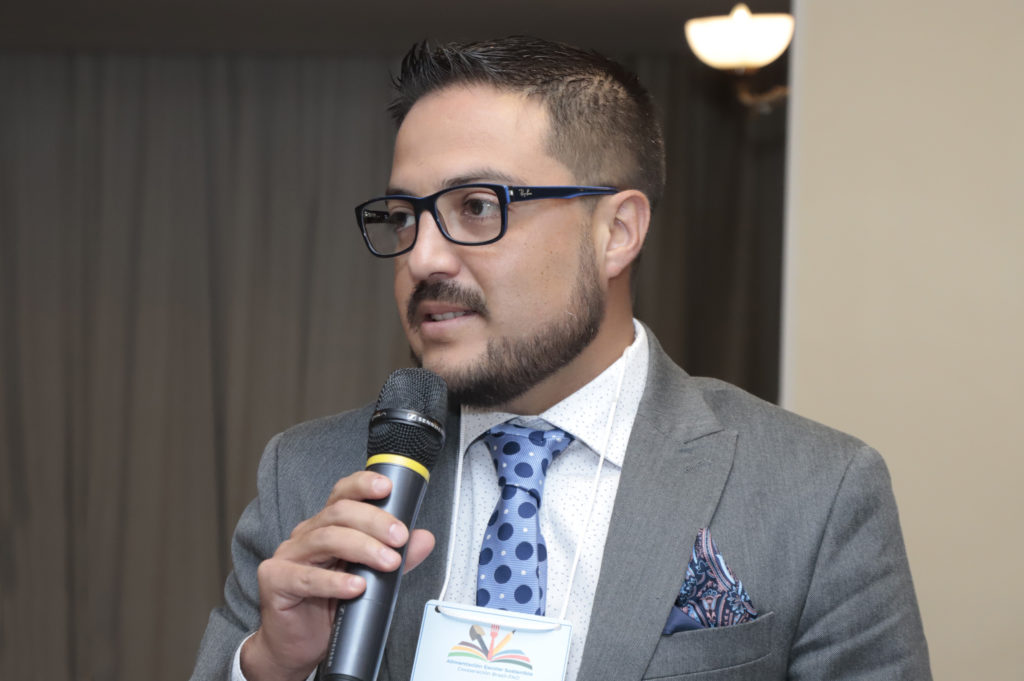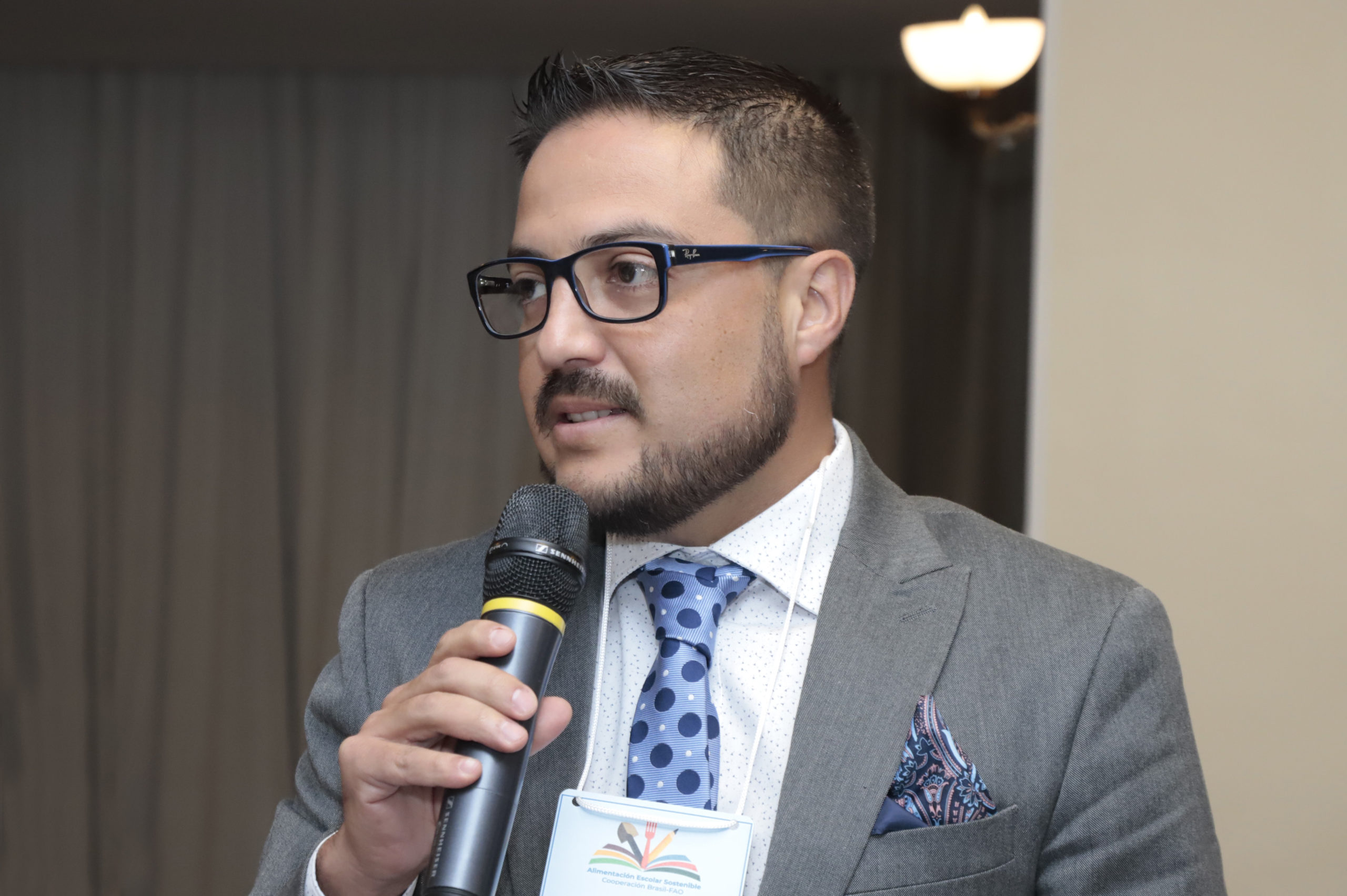In an interview with the RAES platform, Juan Gabriel Casañas, Undersecretary of School Administration of the Ministry of Education of Ecuador, brings an overview of the SFP and its progress in recent years
Paulo Beraldo
The School Feeding Programme of Ecuador has been advancing every day since its creation in 2009. The universalization of attention was achieved, the institutionality was formalized with the Organic Law of School Feeding of 2020 and in 2021 there was the approval of the Regulation of the Law, in the midst of the pandemic.
Now, the challenge is to implement a progressive transition to the introduction of fresh food in schools. The Sustainable School Feeding Network (RAES) interviewed Juan Gabriel Casañas, Undersecretary of School Administration of the Ecuadorian Ministry of Education, to share more about the progress and challenges in the Ecuadorian SFP at this time.
Regulating the Law has made it possible to have better options for planning school meals with fresh fruits, a task that is being discussed with the FAO and with other institutions such as the Ministries of Education, Agriculture, and Health. “We are looking for fruits that are from local family farming and that are consistent with the production in the area,” says Mr. Casañas. Ecuador has four climatic regions: Coast, Mountain, Amazonian, and Insular, with specific fruits in some of them. The fruits must be from the season since there is an abundant supply of varieties such as apples, pears, and peaches.
Despite the fact that Ecuador has a political decentralization, the competence over education and school feeding is unique to the central government. Therefore, a regulatory reform is sought to allow a better way of working on this deconcentration. Today there are 12,000 schools in Ecuador, but fewer than 1,000 have been created by autonomous governments. All the others are under the responsibility of the national government.

“Right now we are in a great inter-institutional articulation to organize it. Our plan, in the first phase, is to work with 118 educational institutions, which are the largest and have the best infrastructure conditions to provide the service, serving nearly 180,000 students with fresh fruit”.
This work is scheduled to begin in 2023 and has been developed based on dialogues and studies with other ministries. It will be necessary to understand the capacity of family farmers to deliver everything that is needed. With the health team, the most appropriate nutritional parameters for the students were defined. “It is a continuous work of articulation and review. The program has to go according to each of the circumstances that are happening.”
To facilitate dialogue, an inter-institutional committee was created, uniting efforts and defining the responsibilities of each participant. The next step will be to add prepared food in the schools themselves to have an even better school feeding program.
About pilot projects providing fresh fruits, as in Portoviejo, Casañas points out that they are vital. “They make it possible to collect relevant information, identify possible delivery complications, the improvement of purchasing processes, and the adaptation of cold spaces to store in a better way”. Casañas stresses, however, that these projects must have a longer duration and be sustainable over time.
Food and nutrition education
Ecuador already has within the national curriculum the work on health education, for teachers, students, and parents, seeking the involvement of the educational community. “We have had a training process for 8,000 teachers in Ecuador’s food-based dietary guidelines (FBDG). We don’t want to just deliver healthier food, but also for students to learn what a healthy lifestyle is.”
“We are initiating a process of raising awareness for teachers at the national level through mass dissemination messages whose ultimate goal is to put together a training itinerary for teachers on food and nutrition topics. It is a coordinated work between various directorates of the Ministry of Education”. One of the purposes is to formalize food and nutritional education for teachers and permanently update curricular contents and pedagogical tools on nutrition, food, and healthy lifestyles.
RAES Network
At the end of the conversation, the expert stressed the importance of the Brazil-FAO International Cooperation and the Sustainable School Feeding Network for the strengthening and consolidation of SFP in the region. “It is very important to be able to maintain this network so that we can take advantage of the experiences we had seen in Brazil, in the technical mission in September. In this process that is underway, the diversity of experiences can help and show alternatives at times of construction” he added.
“This allows us to advance on a base and not start thinking from scratch. We are getting to know models, the experiences of other countries and regions, the circumstances and particularities, to get the most out of making the appropriate changes according to our reality”.



